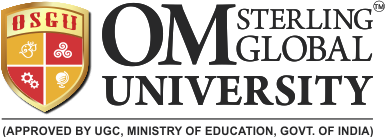In today's rapidly evolving healthcare landscape, the demand for skilled professionals is at an all-time high. Choosing a vocational medical course can be a decisive step toward a rewarding career in this field. Among various institutions, Om Sterling Global University (OSGU) stands out, offering comprehensive vocational medical courses designed to equip students with the necessary skills and knowledge. This article delves into the reasons why you should consider a vocational medical course, the specific offerings at OSGU, and the diverse career opportunities available after graduation.
Vocational medical courses are tailored for individuals aiming to gain practical skills in various medical specialties without committing to lengthy degree programs. These courses are typically shorter and focus on hands-on training, making them an excellent choice for those looking to enter the healthcare sector quickly. At OSGU, students benefit from state-of-the-art facilities, experienced faculty, and a curriculum that emphasizes both theoretical knowledge and practical application. With a focus on emerging technologies in healthcare, graduates from OSGU are well-prepared to meet the demands of the industry.
Career Opportunities After Completing Vocational Medical Courses
One of the most significant advantages of enrolling in vocational medical courses is the variety of career opportunities that await graduates. OSGU offers training in several specialized fields, including:
- Radiologic Technologist or Radiographer
- MRI Technologist
- CT Technologist
- Ultrasound Technologist
- Nuclear Medicine Technologist
- Mammography Technologist
- Cardiovascular Technologist
- Radiation Therapist
- PACS Administrator
- Clinical Instructor or Educator
- Researcher in Medical Imaging
- Healthcare Administration
Each of these roles plays a crucial part in the healthcare system, ensuring that patients receive accurate diagnoses and effective treatment. For instance, radiologic technologists are essential for performing diagnostic imaging examinations, which are pivotal in patient care. Similarly, MRI and CT technologists specialize in advanced imaging techniques, allowing for non-invasive diagnosis.
Read more-Why B Voc Are Great for Future Journalists?
Why OSGU? The Benefits of Studying Vocational Medical Courses
Choosing OSGU for your vocational medical training provides several key benefits:
- Expert Faculty: OSGU prides itself on its experienced and qualified instructors who bring real-world experience into the classroom.
- Hands-On Training: The university's emphasis on practical training ensures that students gain valuable experience before entering the workforce.
- State-of-the-Art Facilities: OSGU offers modern facilities equipped with the latest technology, providing students with a realistic learning environment.
- Industry Connections: The university has strong ties to healthcare institutions, facilitating internships and job placements for students.
Conclusion
Choosing a vocational medical course can open doors to a fulfilling career in healthcare, particularly at institutions like Om Sterling Global University. With a curriculum designed to provide both theoretical knowledge and practical skills, graduates are well-equipped to enter a variety of roles in the medical field. Whether you aspire to become a radiologic technologist or a healthcare administrator, OSGU Vocational offers the training necessary to achieve your career goals. Invest in your future today by exploring the numerous opportunities that vocational medical courses can provide.
FAQs About Vocational Medical Courses
What are vocational medical courses?
Vocational medical courses are specialized training programs that prepare students for specific roles in the healthcare field, focusing on practical skills and knowledge.
How long do vocational medical courses take to complete?
Typically, these courses can range from several months to a 3years.
Are vocational medical courses worth it?
Yes, they offer a quicker path to entering the healthcare workforce, often leading to high-demand jobs with competitive salaries.
What qualifications do I need to enroll in a vocational medical course?
Requirements vary by program, but most courses require a high school diploma or equivalent. Additional prerequisites may apply depending on the specialization.
Can I work while studying a vocational medical course?
Many students find it feasible to work part-time while studying, especially since vocational courses often have flexible schedules.

